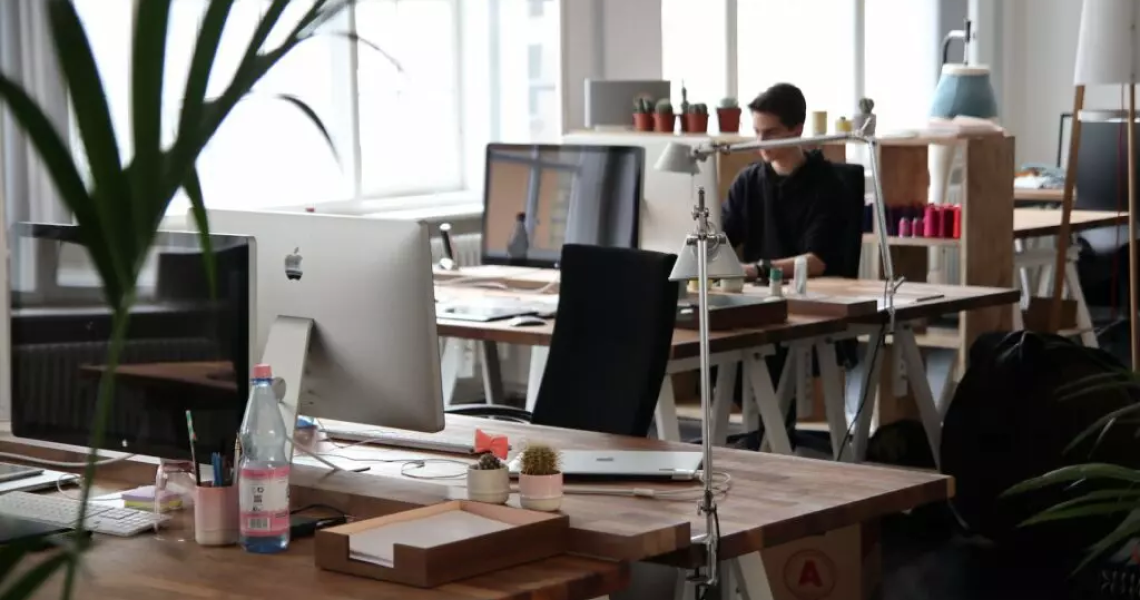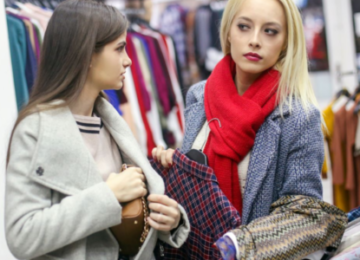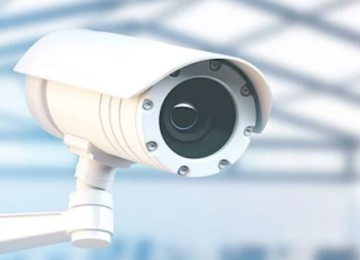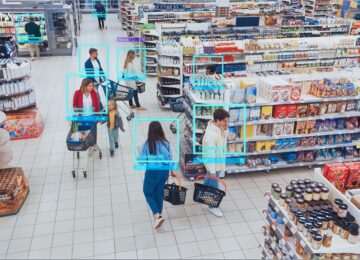All you need to know about video surveillance in stores

Theft is a detrimental act to the profitability of stores. Although there is no such thing as absolute security, you can deter a thief by catching him in the act and thus make it difficult for him to enter the store later on.
The most effective solution to actively fight against theft is video surveillance. Veesion gives you all the information about video surveillance to help you!
Definition of video surveillance
Video surveillance is a process that consists of watching over a place or property from a distance, using cameras to deter and identify offenders. This camera system can also be accompanied by a video recorder and viewing screens. The images from the recordings can then be stored temporarily, reviewed or destroyed.
Why should stores choose video surveillance?
➢ To prevent and reduce the risk of theft: the presence of cameras within an establishment is a deterrent for thieves. But if the expected dissuasive effect does not work, video surveillance allows us to know what happens in the store in real time and to monitor the actions of customers with suspicious behavior.
➢ Useful criminal evidence: when a customer commits a theft but there are no surveillance cameras in the store, it is difficult to prove that he stole and therefore to confront him unless you catch him in the act. The video recordings can provide proof of the theft and therefore potentially bring charges against this customer.
➢ Putting an end to sexual harassment: video surveillance can be useful in detecting much more wrongdoing than just theft. It can detect suspicious and inappropriate behavior by customers among themselves or by customers toward store employees or vice versa.
Installation of a video surveillance system in a store: precautions to take
The installation of surveillance cameras is not done without constraint. It is an intrusion, albeit a moderate one, into someone’s private life. To protect the people recorded, precautions must be taken and certain practices are prohibited or supervised.
➢ Prohibition of filming public places: cameras can be installed at entrances and exits and emergency exits but their purpose must not be to film what is happening in the street.
➢ Prohibition on filming employees at their workstations: cameras should not be used to monitor that your employees are working well. However, there are exceptions, especially when the employee is handling money, but in this case the camera should be directed more on the cash register than on the employee himself.
➢ Prohibition on filming break areas, rest areas or toilets: although employees are at work, they have a right to privacy, especially when they are not performing their duties.
The law concerning video surveillance in stores
The store, beyond being a place where customers pass by, is the employees' workplace. And although this is part of their professional life and not their private life, they still have the right to respect their private life in their workplace.
Thus, when a video surveillance system is installed in this store, precautions are required.
Can the employer install a video surveillance system in its store?
Although the employer has the right to monitor the activities of his employees, he must nonetheless respect their privacy. A balance must therefore be found between respect for privacy and the employer's right to ensure the efficiency of its employees.
To do this, video surveillance can be set up within the store under a few conditions set forth by the labor code. The system must be:
➢ justified by the nature of the tasks to be performed
➢ proportionate to the aim sought
If it respects these conditions, the employer will be able to set up a video surveillance system but will still have to ensure that a balance is maintained between the interests involved.
What parts of the store can be subject to a video surveillance camera?
Although the employer has the possibility to place his store under video surveillance, he cannot install cameras everywhere. The cameras will have to be limited to filming:
➢ entrances and exits
➢ emergency exits
➢ areas where valuable goods or property are stored (e.g. store shelves)
On the other hand, the employer may not film:
➢ employees except under specific conditions (handling money, for example)
➢ break areas, rest areas or toilets
➢ union premises, staff representatives' premises or their accesses
➢ premises open to the public unless authorized by the prefect (which is the case for stores)
What are the employer's legal obligations towards employees?
➢ The duty to inform about the existence of video surveillance
In the event that the employer decides to install a video surveillance system in his store, he is obliged to inform his employees (but also his customers, in particular through posters). This information can be done by any means, the written form being the most reliable source since it guarantees the proof of the execution of the obligation to inform.
If the employer has not informed the employee of the existence of a video surveillance system, he cannot, for example, dismiss his employee on the basis of video recordings. The dismissal will be requalified as without real and serious cause.
➢ The duty to inform on the collection of personal data. To meet this requirement, the employer must:
- inform the employee of the personal data it collects
- include the video surveillance system in the register of processing activities
- carry out an impact study
In-store video surveillance and personal data protection
➢ Gesture recognition only
Veesion technology is based solely on algorithmic processing of gestures. We do not use facial recognition or recording of customer identity. Our technology does not detect the physical characteristics of people. In fact, this is a founding commitment of Veesion to protect the identity of consumers.
No use of collected data
Veesion does not monetize the data from its Artificial Intelligence. The data that results from the use of the solution is only used to detect behaviors that harm property and people.
Our company does not keep any data allowing the detection and identification of an individual (faces, emotions, steps, clothing).
Who can view the images?
The images temporarily recorded by video surveillance must not be freely accessible, neither for employees nor for customers. In principle, only security managers, security guards or employees registered with the prefecture may view these images.
The persons filmed, whether customers or employees, also have the right to view the images in which they appear.
The recorded images can be viewed to remove a doubt, they can be printed to allow the identification of an individual or they can be exported to security companies (such as Veesion).
How long can the images be kept?
It is up to the person in charge of the system to determine how long the images will be kept. He must do so in relation to the objective pursued by the implementation of the video surveillance system.
In principle, the period of conservation does not exceed 30 days, except if a legal procedure is in progress. In fact, certain images can be kept longer if this conservation is necessary for an investigation and to serve as proof relative to a security incident. It is specified that the need for conservation is re-evaluated regularly.
Conclusion
Finally, even if the technical implementation of a video surveillance system seems easy, it generates a whole bunch of measures and constraints that must be respected so that the resulting video recordings can be used legally.
So if you want to set up a video surveillance system in your store or even if you already have one, don't hesitate to boost its efficiency with Veesion! Our solution requires nothing more than the presence of a video surveillance system in your store to work.
The most popular
Related news
Discover what Veesion can do for you. Do you have one or more stores?
Our team will contact you within 48 hours





